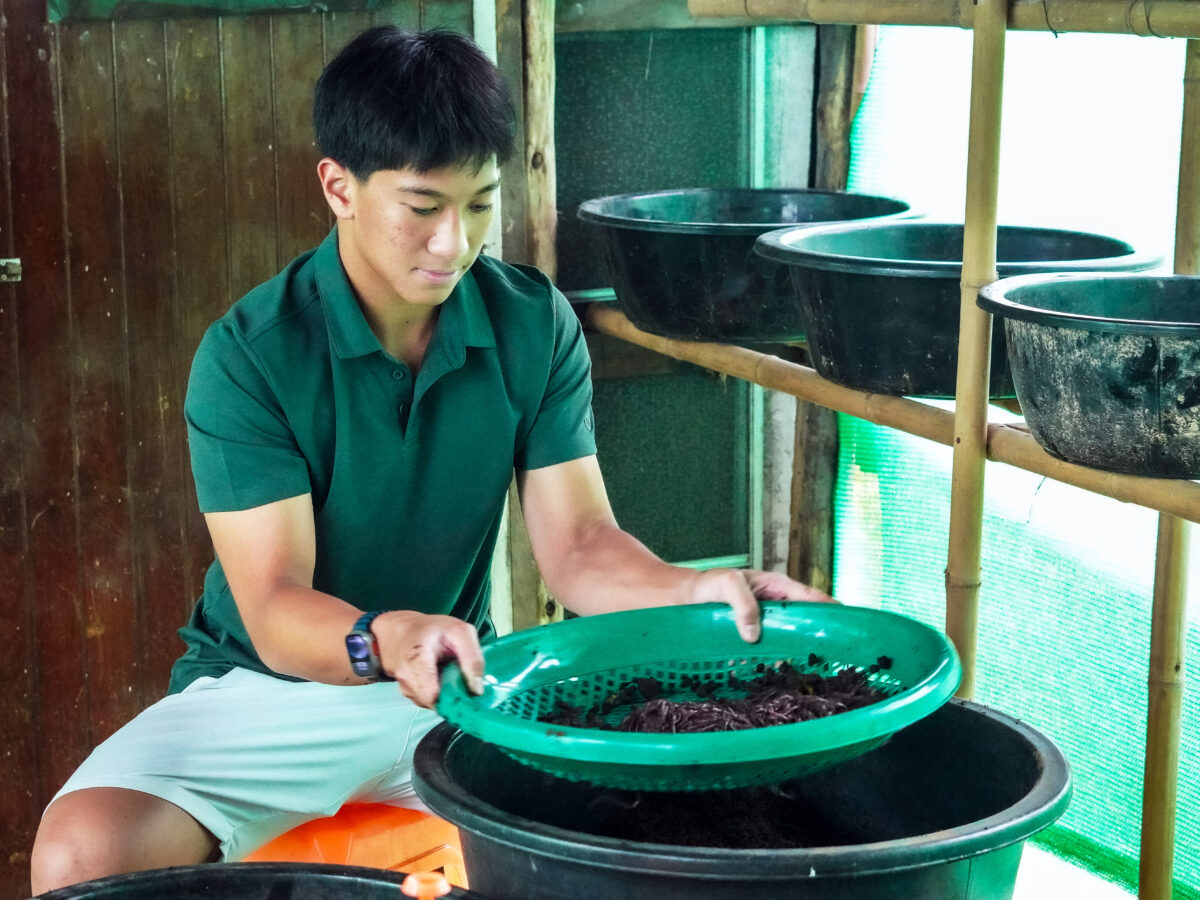Sudsy Solution

Aruth Chinsupakul '26 found relief from eczema by creating his own therapeutic soap
As a preteen in Thailand, Aruth “Art” Chinsupakul ’26 kept an uncomfortable secret: He had a severe case of eczema, a chronic inflammatory skin disease. Embarrassed about his skin’s appearance, he took cover under long sleeves even on the hottest days. After swim practice, he’d skip the locker room, afraid he’d face questions from his teammates.
“I missed out on a lot of bonding moments in middle school,” he says. “My friends thought I was being secretive by leaving right after practice, and it made me more distant from the team.”
For short-term relief from the persistent itch and burn, Chinsupakul relied on baby soap, but he knew there had to be a better solution. He turned to his grandmother for help.
“She and I are very close,” he says, “and she has a lot of knowledge about herbal medicine and her own herbal garden.” The seeds of what would become an internationally sold soap brand were sown in his grandmother’s garden.
“She’s the type of person that wouldn’t just give me answers,” he says. “She would make me try and fail.”
With just enough guidance from her, Chinsupakul worked out of his grandmother’s house in Bangkok, experimenting with ingredients sourced from local farmers for his bar soap.
“A lot of my batches would not even form,” he says. “And other batches would snap in half after use or would turn to slime after contact with water, which is pretty unpleasant.”
When he landed on the right combination of herb oils and aloe, Chinsupakul began making larger batches to give away. In doing so, he began to realize just how many people he could help.
“When I was younger, I was so narrow-minded and thought I’m the only one in the world with eczema,” he says. “After I started giving the soap to my friends and family and others with eczema, I got so many positive responses, I thought I should sell this.”
Five years ago, Chinsupakul founded his company Art & Alice, which he named after himself and his 11-year-old sister. He says she motivates him to keep the business going even when he’s far from home during the school year.
“I’ve learned to build systems and rely on teamwork,” he says, “with community partners in Thailand handling production while I stay connected with them through online platforms.”
As Chinsupakul began to scale up production, he took the next step to ensure his process was sustainable. “My first goal was to find a cure for my symptoms, but I strive to challenge myself,” he says. “Sustainability wasn’t my primary goal, but I incorporated it as a way to push my limits.”
To that end, he looked to hire people to grow his soap’s ingredients. “I had a good opportunity through my mom’s work in education and was able to partner with a school for the visually impaired,” he says. “The students help grow the aloe vera plants. It was a turning point for me. I realized that I could not only help others by creating my soap, but I could also help others, like the visually impaired students, to feel independent by making their own income.”
Chinsupakul credits his parents and Harkness for helping nurture his entrepreneurial spirit. “Both my parents are entrepreneurs, so it runs in the family,” he says. “And at Exeter, you’re always thinking of creative solutions. In a Harkness discussion you have to come prepared for each class and be interactive. That’s helped a lot with my time management and communication skills.”
This article was first published in the fall 2025 issue of The Exeter Bulletin.